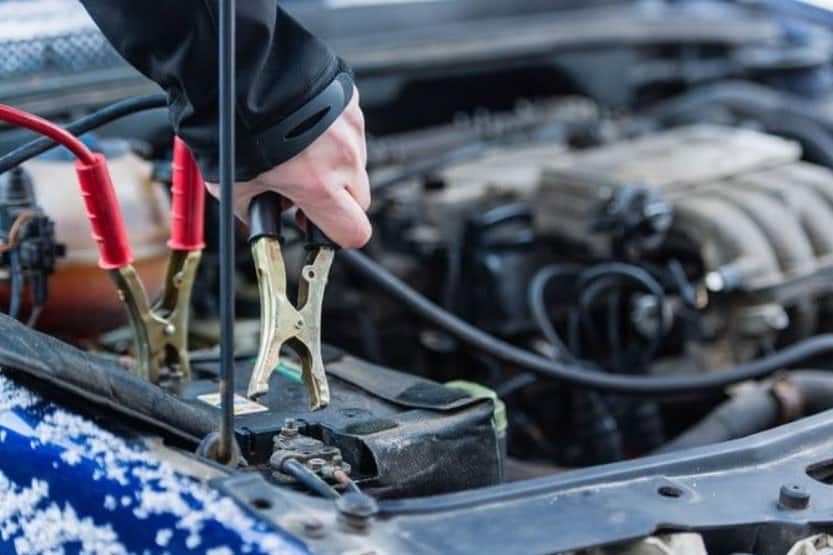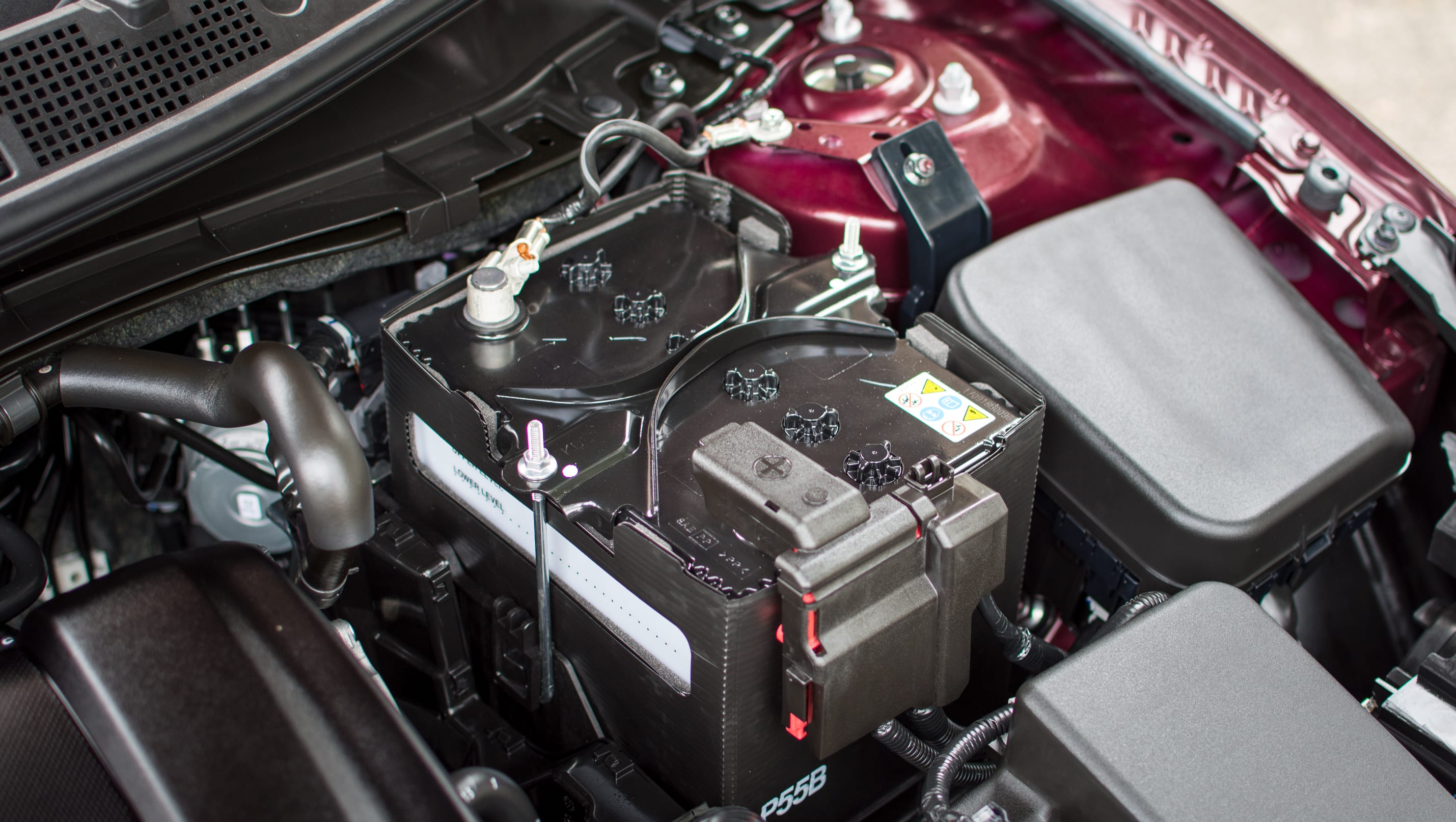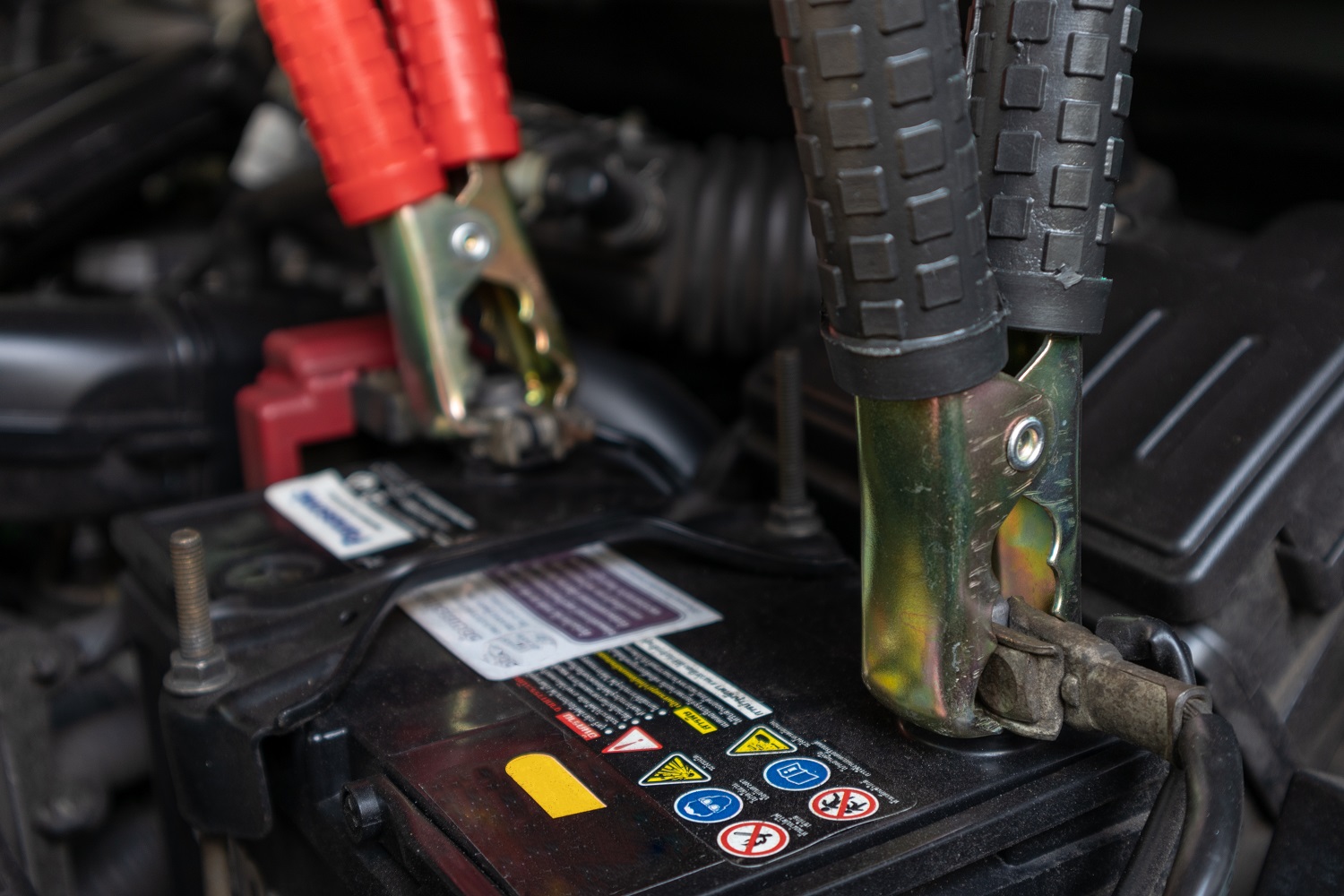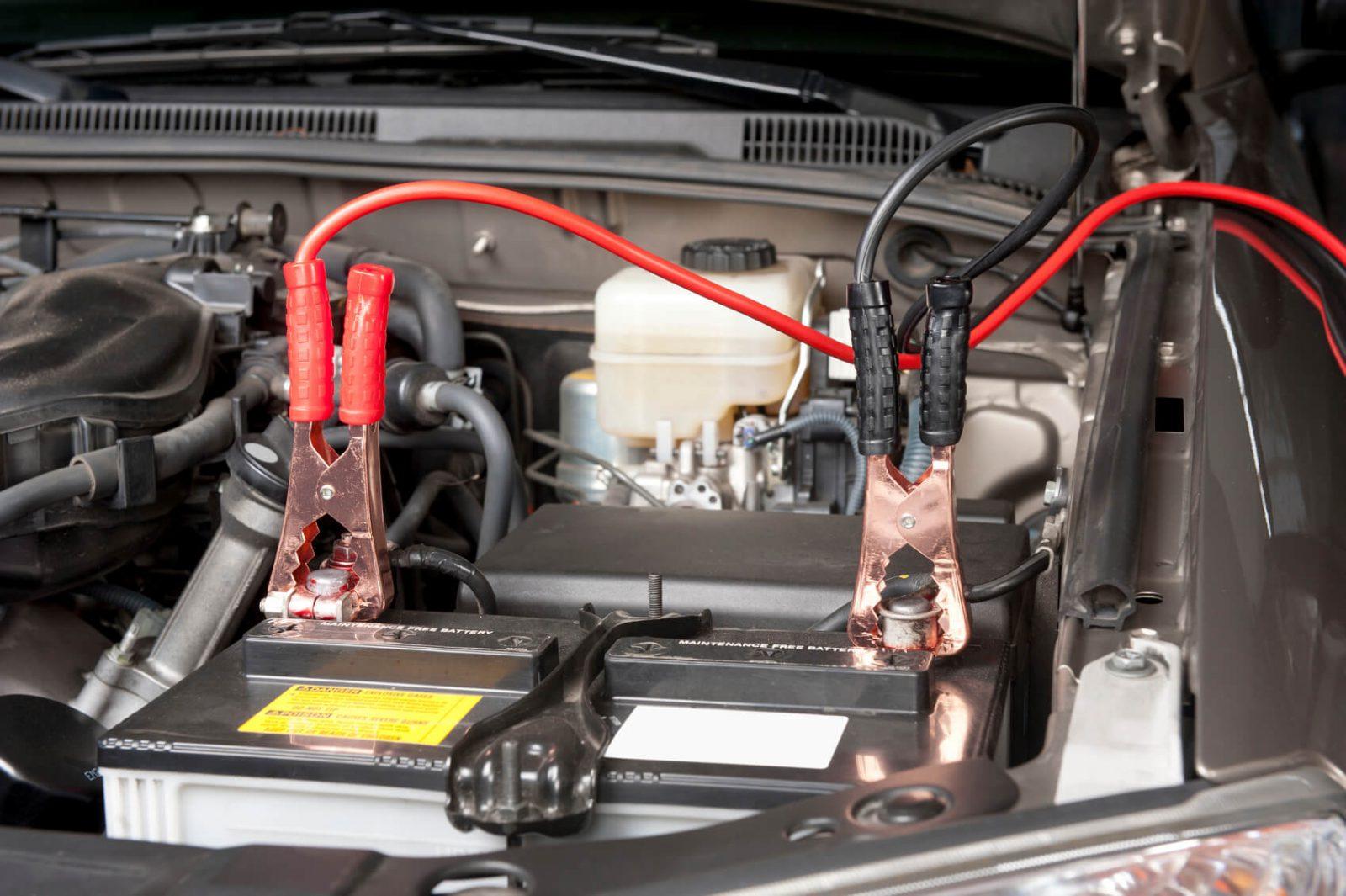Your How long does it take to charge a car battery images are available in this site. How long does it take to charge a car battery are a topic that is being searched for and liked by netizens now. You can Download the How long does it take to charge a car battery files here. Download all free photos and vectors.
If you’re searching for how long does it take to charge a car battery images information linked to the how long does it take to charge a car battery interest, you have visit the ideal blog. Our site always provides you with hints for viewing the highest quality video and image content, please kindly surf and find more informative video articles and images that match your interests.
How Long Does It Take To Charge A Car Battery. However, if you are using a 2 amp charger, it will take you 2 to 4 days to charge. The length of time that it takes depends on several things but is usually between 15 and 60 minutes. But then, you don’t need to fully charge your car battery to make it work. The bigger your vehicle’s battery capacity (measured in kwh), the longer it will take to charge.
 How Long Does It Take To Charge A Car Battery? From vehiclescene.com
How Long Does It Take To Charge A Car Battery? From vehiclescene.com
Some l2 stations can charge at up to 19.2 kws, but the charging rate is ultimately determined by the vehicle, and it�s more common to find evs that charge between 6.0 and 12.0 kws on a. Other models may take as long as 24 hours get back to full capacity. Some chargers can fully charge a battery in 30 minutes, while others may take twice as long. A trickle charger typically charges at around two amps. Charging a normal car battery with a regular car charger of around 8 amperes can take 12 hours or even a whole day to fully charge it. However, the liner charges provide continuous charges.
Why car batteries die age.
In general, there are five main factors that affect electric car charging times. Battery capacity (in kwh and based on the make and model of electric car) battery charge (topping up is faster than a full 0% to 100% recharge) max charge rate (evs have a maximum charging rate they can support) The higher the temperature and the longer you are driving, the quicker you need to charge it. Some l2 stations can charge at up to 19.2 kws, but the charging rate is ultimately determined by the vehicle, and it�s more common to find evs that charge between 6.0 and 12.0 kws on a. Car batteries can die for a number of reasons. So, if the ev has a 60 kwh battery pack, it will take a bare minimum of 60 hours to charge in full.
 Source: vehiclescene.com
Source: vehiclescene.com
If you purchase a higher quality battery odds are the battery will last longer. What is the charging time for deep cycle and starting batteries? You can only charge a vehicle’s battery at the maximum charge. If you purchase a higher quality battery odds are the battery will last longer. Using a level 2 connector, an ev’s charging speed is impacted by how much power the station is capable of delivering, as well as the charging rate of the car’s onboard charger.
 Source: roadsumo.com
Source: roadsumo.com
However, always be prepared to leave the charger on overnight in case it takes longer than expected. However, you should not leave this charger on your battery for more than 8 hours or you could risk overcharging and damage the battery. However, the liner charges provide continuous charges. For a car battery that is completely dead, charging can take as long as 24 hours. Car batteries can die for a number of reasons.
 Source: carsguide.com.au
Source: carsguide.com.au
In conclusion, i would say that it will depend on the battery, the weather conditions, and the speed at which you are driving. However, the liner charges provide continuous charges. If you are charging from empty, it will take longer to charge than if you are topping up from 50%. Chargers designed for deep cycle batteries typically take a longer time to charge the battery than those designed for sli batteries. Depending on the age of the battery it might no longer hold a charge.
 Source: adrianflux.co.uk
Source: adrianflux.co.uk
In conclusion, i would say that it will depend on the battery, the weather conditions, and the speed at which you are driving. The exact time depends on how many amps the charger sends at any given time. With a fully functioning alternator and a healthy battery, it should not take long for the battery to charge while you are driving. The alternator charges the battery while the car runs, so you can try charging the battery this way if you don’t have access to a charger as long as the car can be started. Chargers designed for deep cycle batteries typically take a longer time to charge the battery than those designed for sli batteries.
 Source: paulanernyc.com
Source: paulanernyc.com
However, you should not leave this charger on your battery for more than 8 hours or you could risk overcharging and damage the battery. Recharging a dead car battery can take at least 4 hours, and even up to 24 hours depending on the power of the charger and the size of the. The length of time that it takes depends on several things but is usually between 15 and 60 minutes. Some chargers can fully charge a battery in 30 minutes, while others may take twice as long. State of battery (empty vs.
 Source: carfromjapan.com
Source: carfromjapan.com
However, you should not leave this charger on your battery for more than 8 hours or you could risk overcharging and damage the battery. Rate of charge different chargers recharge batteries at different rates. The charging time heavily depends on the car battery and the charger’s power output. Level 2 systems typically deliver between 3 kw and 19 kw. So, if you had, say, a 40ah battery and an 80ah battery, it would theoretically take twice as long to charge the 80ah battery, assuming the same level of depletion and rate of charge.
 Source: yourautomaster.com
Source: yourautomaster.com
If you purchase a higher quality battery odds are the battery will last longer. Some l2 stations can charge at up to 19.2 kws, but the charging rate is ultimately determined by the vehicle, and it�s more common to find evs that charge between 6.0 and 12.0 kws on a. Depending on the age of your battery, the capacity and construction of the charger and the charging technique used, it may take a few hours to reach a complete charge. Fast charging devices can fully charge a dead battery in as little as 10 hours. The charging time heavily depends on the car battery and the charger’s power output.
 Source: extendbatterylife.net
Source: extendbatterylife.net
Charging a normal car battery with a regular car charger of around 8 amperes can take 12 hours or even a whole day to fully charge it. Some batteries can be fully charged in as little as 20 minutes, while others may take up to an hour or more. But then, you don’t need to fully charge your car battery to make it work. Car batteries can die for a number of reasons. So, how long, on average, does it take to charge a car battery while driving?
 Source: homesthetics.net
Source: homesthetics.net
Depending on the age of your battery, the capacity and construction of the charger and the charging technique used, it may take a few hours to reach a complete charge. If you are using a 10 ampere (amp) charger, it may take you 4 to 11 hours to fully charge it. Depending on the age of your battery, the capacity and construction of the charger and the charging technique used, it may take a few hours to reach a complete charge. In conclusion, i would say that it will depend on the battery, the weather conditions, and the speed at which you are driving. A battery that is around a 50% charge is generally powerful enough to start the car.
 Source: theautomotivemen.com
Source: theautomotivemen.com
Depending on the age of the battery it might no longer hold a charge. So, how long, on average, does it take to charge a car battery while driving? Battery capacity (in kwh and based on the make and model of electric car) battery charge (topping up is faster than a full 0% to 100% recharge) max charge rate (evs have a maximum charging rate they can support) What is the charging time for deep cycle and starting batteries? Charging a normal car battery with a regular car charger of around 8 amperes can take 12 hours or even a whole day to fully charge it.
 Source: myauctionsheet.com
Source: myauctionsheet.com
Too much car battery charging is not good! Chargers designed for deep cycle batteries typically take a longer time to charge the battery than those designed for sli batteries. Some l2 stations can charge at up to 19.2 kws, but the charging rate is ultimately determined by the vehicle, and it�s more common to find evs that charge between 6.0 and 12.0 kws on a. Other models may take as long as 24 hours get back to full capacity. How to work out electric car charging times.
 Source: saferoad.org
Source: saferoad.org
However, you should not leave this charger on your battery for more than 8 hours or you could risk overcharging and damage the battery. Some batteries can be fully charged in as little as 20 minutes, while others may take up to an hour or more. So, if you had, say, a 40ah battery and an 80ah battery, it would theoretically take twice as long to charge the 80ah battery, assuming the same level of depletion and rate of charge. Why car batteries die age. Max charging rate of vehicle:
![How Long Does it Take to Charge a Car Battery? Source: homebatterybank.com
They do not have a controller to halt the charging when the car’s battery is at its peak. A battery that is around a 50% charge is generally powerful enough to start the car. However, if you are using a 2 amp charger, it will take you 2 to 4 days to charge. How long to charge a car battery at 2 amps. But then, you don’t need to fully charge your car battery to make it work.
![How Long Does It Take To Charge A Car Battery? // [Full Guide] How Long Does It Take To Charge A Car Battery? // [Full Guide]](https://autowranglers.b-cdn.net/wp-content/uploads/2021/03/recharging-car-battery-with-jumper-cables.jpg) Source: autowranglers.com
Source: autowranglers.com
But while the range has improved, other problems have come with it, most notably longer charging times, so how long does it take to charge an electric car? Depending on the age of the battery it might no longer hold a charge. The bigger your vehicle’s battery capacity (measured in kwh), the longer it will take to charge. You can only charge a vehicle’s battery at the maximum charge. What is the charging time for deep cycle and starting batteries?
 Source: roadsumo.com
Source: roadsumo.com
The bigger your vehicle’s battery capacity (measured in kwh), the longer it will take to charge. Depending on the age of your battery, the capacity and construction of the charger and the charging technique used, it may take a few hours to reach a complete charge. Some batteries can be fully charged in as little as 20 minutes, while others may take up to an hour or more. But then, you don’t need to fully charge your car battery to make it work. Why car batteries die age.
 Source: autounleashed.com
Source: autounleashed.com
Charging a normal car battery with a regular car charger of around 8 amperes can take 12 hours or even a whole day to fully charge it. Rate of charge different chargers recharge batteries at different rates. Depending on the age of your battery, the capacity and construction of the charger and the charging technique used, it may take a few hours to reach a complete charge. Charging your car battery with a 2 amp car battery charger will take a reasonably long time, up to 24 hours to reach an acceptable charge, this is determined by the fact that your car battery is usually 48 amps and it takes about 1 amp charge per hour on average. But while the range has improved, other problems have come with it, most notably longer charging times, so how long does it take to charge an electric car?
 Source: saferoad.org
Source: saferoad.org
State of battery (empty vs. If you purchase a higher quality battery odds are the battery will last longer. If you are driving on an open road and your engine rpm is sufficiently up, it should not take more than 30 minutes for the battery to charge. Some chargers can fully charge a battery in 30 minutes, while others may take twice as long. In conclusion, i would say that it will depend on the battery, the weather conditions, and the speed at which you are driving.






